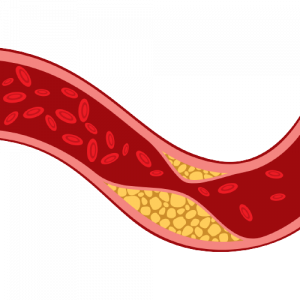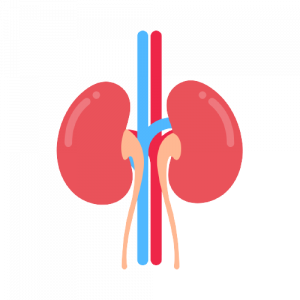Ferritin Blood Test
$79.00
Ferritin is a protein that plays a vital role in iron storage within the body. It serves as a marker for assessing the body’s iron stores. Ferritin is primarily found in cells and tissues, particularly in the liver, spleen, and bone marrow. It stores iron in a non-toxic form until it is needed for various bodily functions. Ferritin levels are commonly measured through a blood test. It is a useful diagnostic marker to assess iron status, evaluate suspected iron deficiency or iron overload, and monitor the response to iron supplementation or treatment.
Analytes in this test: Ferritin (1 analyte).
Description
About the Test
Ferritin is a protein that stores iron in the body. Iron is an essential mineral that is needed to produce hemoglobin, the protein in red blood cells that carries oxygen from the lungs to the rest of the body. Ferritin helps to regulate the amount of iron in the body and to make sure that enough iron is available for the production of hemoglobin.
A ferritin blood test measures the amount of ferritin in the blood and provides an indirect measure of the body’s iron stores. A low ferritin level can indicate iron-deficiency anemia, which is a common form of anemia that occurs when the body doesn’t have enough iron to produce enough hemoglobin. A high ferritin level can indicate other conditions such as hemochromatosis (a genetic condition where too much iron is absorbed and stored in the body) or inflammation.
A healthcare provider can interpret the results of a ferritin blood test and make recommendations for treatment or lifestyle changes as needed. It is important to keep in mind that the results of a ferritin test can be influenced by factors such as age, gender, overall health, and recent iron intake.
Overview of Ferritin Blood Test
Ferritin is a protein that stores iron in the body. Iron is an essential mineral that is needed to produce hemoglobin, the protein in red blood cells that carries oxygen from the lungs to the rest of the body. Ferritin helps to regulate the amount of iron in the body and to make sure that enough iron is available for the production of hemoglobin.
A ferritin blood test measures the amount of ferritin in the blood and provides an indirect measure of the body’s iron stores. A low ferritin level can indicate iron-deficiency anemia, which is a common form of anemia that occurs when the body doesn’t have enough iron to produce enough hemoglobin. A high ferritin level can indicate other conditions such as hemochromatosis (a genetic condition where too much iron is absorbed and stored in the body) or inflammation.
A healthcare provider can interpret the results of a ferritin blood test and make recommendations for treatment or lifestyle changes as needed. It is important to keep in mind that the results of a ferritin test can be influenced by factors such as age, gender, overall health, and recent iron intake.
Analytes Tested in a Ferritin Blood Test
1 Analyte
Ferritin
What is a Ferritin Blood Test?
A ferritin blood test measures the level of ferritin in your blood. Ferritin is a protein that stores iron inside your cells. You need iron to make healthy red blood cells. Red blood cells carry oxygen from your lungs to the rest of your body. Iron is also important for healthy muscles, bone marrow, and organs, including brain development in children.
Too little or too much iron in your body can cause serious health problems if not treated. A ferritin blood test can show how much iron you have stored in your body.
Other names: serum ferritin, serum ferritin level, ferritin serum
Why Do I Need a Ferritin Blood Test?
You may need this test if you have symptoms of iron levels that are too low or too high.
Symptoms of iron levels that are too low include:
- Shortness of breath
- Weakness or fatigue
- Dizziness
- Arrhythmia (a problem with the rate or rhythm of your heartbeat)
Symptoms of iron levels that are too high can vary and tend to get worse over time. Symptoms may include:
- Weakness or fatigue
- Joint pain, commonly in the knees or hands
- Loss of interest in sex or erectile dysfunction (ED)
- Abdominal (belly) pain
- Change in skin color, which may look gray, metallic, or bronze
You may also need this test if the results of other blood tests show that you have low hematocrit or hemoglobin levels.
What Happens During a Ferritin Blood Test?
A health care professional will take a blood sample from a vein in your arm, using a small needle. After the needle is inserted, a small amount of blood will be collected into a test tube or vial. You may feel a little sting when the needle goes in or out. This usually takes less than five minutes.
Will I Need To Do Anything To Prepare For The Test?
Your health care provider may ask you to fast (not eat or drink) for 12 hours before your test. The test is usually done in the morning. If you have any questions about how to prepare for your test, talk to your health care provider.
Are There Any Risks To The Test?
There is very little risk to having a blood test. You may have slight pain or bruising at the spot where the needle was put in, but most symptoms go away quickly.
What Do The Results Mean?
Lower than normal ferritin levels may mean you have iron deficiency anemia, or another condition related to low iron levels. Iron deficiency anemia is a common type of anemia, in which your body doesn’t make enough red blood cells. Without treatment it can lead to heart problems, infections, slow growth and brain development in children, and other health issues.
Higher than normal ferritin levels can mean you have too much iron in your body. Conditions that cause increased iron levels include:
- Liver disease
- Alcohol use disorder
- Hemochromatosis
- Hyperthyroidism
If your ferritin results are not normal, it does not always mean you have a medical condition that needs treatment. Certain medicines can decrease or increase your ferritin levels. If you have questions about your results, talk with your health care provider.
Lab Method
Specimen Requirements
SST tube of blood, serum
Turn Around Time
5 to 24 hours
Price For Test
Price: $79






